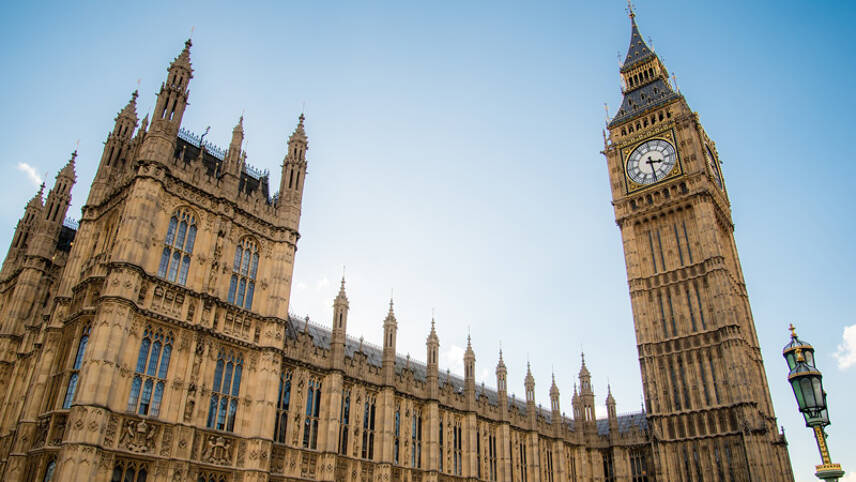Register for free and continue reading
Join our growing army of changemakers and get unlimited access to our premium content

This is in spite of the publication of more than 3,000 pages of new detail this March, made after previous policy plans to reach net-zero by 2050 were ruled to be unlawful.
The Climate Change Committee (CCC) has today (28 June) released its annual progress report to the UK Parliament, charting policy preparedness for the UK to deliver its legally binding 2050 emissions goals and its interim carbon budgets.
While the Committee has praised the Government for bringing forward new details of its plans to decarbonise the national economy, it has warned that Ministers risk using transparency “as a substitute for real delivery”. The Committee is actually less confident that the UK will meet its emissions targets than it was this time last year.
Under the Paris Agreement, the UK is committed to ensuring that annual emissions are 68% lower in 2030 than they were in 1990. To achieve this, the CCC has concluded, the rate of annual emissions reductions outside of the electricity supply sector will need to quadruple.
As it has done before, the CCC has accused the UK Government of failing to replicate the success of decarbonising electricity in other sectors. The UK’s annual emissions are now 46% lower than they were in 1990, but emissions from some sectors, including buildings and agriculture, remain stubbornly flat.
The CCC is warning that the UK cannot afford to wait until after the next general election to bring forward new and improved plans to meet its 2030 climate goal. It also sets out how, in doing so, Ministers have an opportunity to gain public support, developing plans that also contribute to levelling up and lowering energy bills.
CCC chairman Lord Deben said: “This is a period when pace must be prioritised over perfection.
“The lesson of my ten years at the Committee is that early action benefits the people of this country and helps us to meet the challenges of the coming decades more cheaply and more easily. Yet, even in these times of extraordinary fossil fuel prices, Government has been too slow to embrace cleaner, cheaper alternatives and too keen to support new production of coal, oil and gas.”
The Government has shrugged off the CCC’s accusations in its initial response. A spokesperson said the UK is still a “world leader on net-zero” and pointed to the fact that the first, second and third carbon budgets have all been met.
Yet the CCC is not confident that the fifth carbon budget will be met. It has also questioned how the UK can call itself a world leader when it is “sending confusing signals globally”, including approving deep coal mining and pressing ahead with oil and gas licencing.
Enhanced focus
The CCC has once again concluded that Government departments are not working in a joined-up fashion on net-zero, thus leaving the risk of policy gaps. Its report welcomes Rishi Sunak’s decision to create the Department for Energy Security and Net-Zero, but questions whether this department is properly working with others including the Department for Environment, Food and Rural Affairs (Defra).
Chris Skidmore MP has called on the Government to create a new, independent office for net-zero delivery, tasked with ensuring departments collaborate. Ministers have, so far, refused to follow this recommendation.
As Skidmore had through his Net-Zero Review, the CCC have concluded that the UK is not properly preparing to realise the economic and social benefits of the net-zero transition.
It concludes that the UK has far less mature plans for scaling low-carbon industries than other markets, with the risk of it falling further behind as markets including the US, EU and China further bolster their green industrial plans. The Chancellor is not due to set out the UK’s plans in this regard until Autumn – a delay which has disappointed the opposition and many key industry bodies. The CBI has pointed to a £4.3bn “squandered opportunity” this decade.
Sector-specific policy gaps
The CCC has pointed to some “glimmers” of good practice for net-zero policymaking. These include the UK Government’s ban on coal-fired electricity from autumn 2024 and its clear signals on scaling the electric car market.
Yet the report shows far more areas in which policy gaps remain. It accuses Ministers of “placing their reliance on technological solutions that have not been deployed at scale”, failing, instead, to change behaviours and to support the rapid deployment of technologies.
Failures flagged in the report include missed tree planting targets; a lack of a comprehensive plan to improve home energy efficiency; a failure to limit airport expansion; delay in the publication of a land use strategy; and sparse plans to deploy electric heat pumps. Deploying heat pumps this decade will be a “low-regret” option, the CCC concludes.
edie has published an in-depth explanation of the CCC’s conclusions and recommendations for each sector. CCC reports cover industries including manufacturing, agriculture, energy, buildings and transport. Read the explainer here.
We have also pulled together the reaction to the CCC’s report. Read our round-up here.


But HMG are word people, not scientists and engineers.
Was it not ever thus???